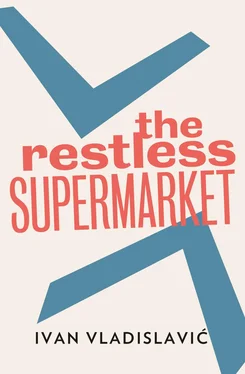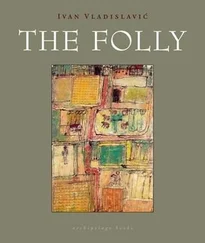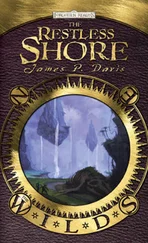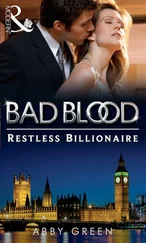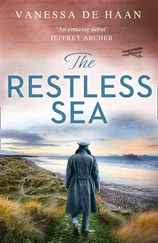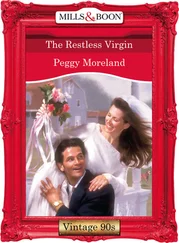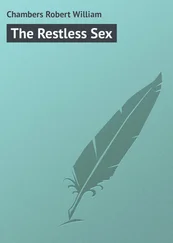About a year earlier, in the final months of my gainfully employed life, the editor of the puzzles page, as he was probably known, and almost certainly a new appointment, some wallah kicked upstairs at the behest of the nabobs of the tricameral parliament, had taken it upon himself to change the tried-and-tested format of the crossword. The two sets of clues, cryptic and straight, now appeared one below the other alongside the grid (with the straight ones on top!). The reasons for the change were never explained — they were always tinkering with the newspaper these days, moving things around, making them bigger or smaller or doing away with them altogether, in the scramble for what they called ‘market share’ — but the upshot was that one could no longer fold the paper to obscure the straight clues without folding the grid itself in half. Just one fleeting glance at the straight clues could take the difficult pleasure out of half a dozen cryptic ones. Even as one began to puzzle pleasantly over ‘Races Thomas ran badly’, the disobedient eye would leap with infuriating precision to ‘Long-distance running races’ in the straight column. It was dispiriting. The only solution was to remove the straight clues from eyeshot entirely by tearing them out, resisting all the while the desire to look at them: I had resorted to exactly the cock-eyed procedure the stranger was now performing, and my heart went out to him, alone as he was, and with no one to turn to.
I had kept to myself at the Café Europa in the beginning, but in time I did establish a nodding acquaintance with Mevrouw Bonsma, our pianist, and Mrs Mavrokordatos, our proprietor. To Mevrouw Bonsma I occasionally sent politely worded notes, requesting an old favourite. She knew everything. She was an immense reservoir of melodies, endlessly seeping, flowing one into the other, always brimming. It was a fullness I found a little disconcerting. I tried to trip her up a few times by asking for chestnuts such as ‘The Isle of Capri’ or ‘Arrivederci Roma’, but she played them all without missing a beat. I had hopes of making her open her leather portfolio, which she stowed in the cross-stitched seat of her stool every day, and which I assumed contained sheet music, although I had never seen her consult it. Finally, in a spirit of curiosity, for I am not in the habit of playing practical jokes, I made something up. Then Mevrouw approached my table and asked me to hum the beastly thing. I had to refuse. I had never hummed in my life, I told her, and certainly not for a pianist, and I saw no reason to start now.
My acquaintance with Mrs Mavrokordatos, circumscribed by the more dependable bounds of reciprocation between proprietor and customer (custom, like costume, from the ME and OF custume , from the Latin consuetudo ), was both more formal and more at ease. It was through the kind offices of Mrs Mavrokordatos that I found a neater, less bothersome solution to my dilemma with the crossword than the wretched ripping I had been reduced to. When I arrived at the Café in the afternoon, I would hand her the newspaper and she would snip out the straight clues with a pair of scissors, giving me the little patch of newsprint, considerately folded clue-side-in, to store in my wallet. This arrangement had a couple of advantages, in addition to the embarrassment it spared me. If there was some important information on the reverse side of the page, some damaged article I would only discover later that evening or the next morning when I was trawling for typographical errors, I could easily restore the excision, snug as a jigsaw piece. This very thing happened on more than one occasion. And in the unlikely event of my not being able to complete the puzzle, I could consult the straight clues. In my opinion, it was better to finish the puzzle with the aid of the simple clues than not to finish it at all. This proved to be one of the matters on which Spilkin and I held diametrically opposed views. (Dress sense was another. Not to mention … no, let me not mention it.) It wasn’t that we differed on the status of the straight clues themselves: in his book, as in mine, the straight clues were for simple minds. But we did not attach the same importance to completion, to finalization. He was quite happy (although it very seldom came to this) to leave a puzzle unfinished; whereas I could not get to sleep at night if a clue eluded me.
The stranger Spilkin, a person whose name I did not even know, finished tearing, crumpled the scrap into a ball and tossed it into the ashtray, where it immediately began to unfold, blossoming like a desert bloom in a time-phase film. He smoothed the page flat, propped it on his knee in the beam of the searchlight and took a pen from his pocket. It was a beautiful pen, a fountain pen with a marbled barrel, a Waterman I would have said (and I would have been right). The sort of pen advertising copywriters liked to call a ‘writing instrument’. This pen, reclining elegantly on the soft cushion of his forefinger, with its nib as sleek as a ballet slipper, made me proof him more thoroughly, from the open-neck shirt down to the white slip-ons. His clothes were pastel and sporty, casual but expensive; they would have been perfectly at home on the greens, under a blue sky, but looked flashy in this dim brown interior.
He began to fill out the clues with remarkable facility.
How long would it take him? Half an hour was considered ‘good’. I consulted my records: that day’s puzzle had taken me twenty-three minutes to solve. Now that my notebook lay open on the table, on the inlaid chequerboard I’d always fondly wished might be transformed one day into a crossword grid, I suddenly resolved to take up the matter of the inconvenient new format of the clues with the editor of the Star . I had been putting it off for months, but watching Spilkin’s contortions had made me aware that the problem was not just my own. A whole community of people were being inconvenienced by some lowly editorial whim. I took up the cudgels on their behalf.
The letter was a good one.
18 July 1987
Dear Sir,
Until recently, the cryptic and the straight clues to your two-speed crossword puzzle appeared above and below the grid respectively, and appropriately so. This enabled the proponents of the higher method to obscure the evidence of the lower by the simple expedient of folding the page in half.
Since the two sets of clues now appear alongside the grid, this procedure is no longer possible. Your puzzles editor can verify this in an instant.
Some of your readers may be accustomed to a diet of chalk and cheese, but my constitution will not bear it. This new format will improve neither your circulation nor mine. I urge you to revert to the time-honoured one.
Yours faithfully, etcetera
The letters editor thought my letter had merit too, for he published it in this shortened version. One never takes excision lightly, but at least the blade was true. (The present incumbent, by contrast, uses a rusty hacksaw or the blunderbuss of the delete button.) The casualties? A mot on origami that I had been in two minds about all along — ‘your puzzles editor, unless he be an expert in origami, the Japanese art of folding paper into decorative shapes and figures ’; and a postscript suggesting that the type used for the clues be increased from 10 point to 12. ‘ The eyesight of many of our citizens, especially the senior ones ,’ I wrote, ‘ is more likely to be SO-SO than 20–20, I should imagine .’ Dispatched to File 13, now restored to their rightful place.
So engrossed was I in the composition of this letter that I forgot to stop the clock, and when I glanced his way again, the man at No. 3 had turned to the business pages and was doodling on the lists of share prices. Then Mrs Mavrokordatos came in and greeted him warmly — Ronald, I thought she called him — welcoming him back and saying she had missed him, and he said he was delighted to be back, he had missed her too. His voice was small and mild too, if a little nasal, and his grammar seemed presentable. I gathered from what passed between them that he was a former customer, recently retired like myself, that he had been away for some time on the south coast of Natal (KwaZulu-Natal, as he called it, quite properly) staying with a son, but that the arrangement had not ‘panned out’.
Читать дальше
